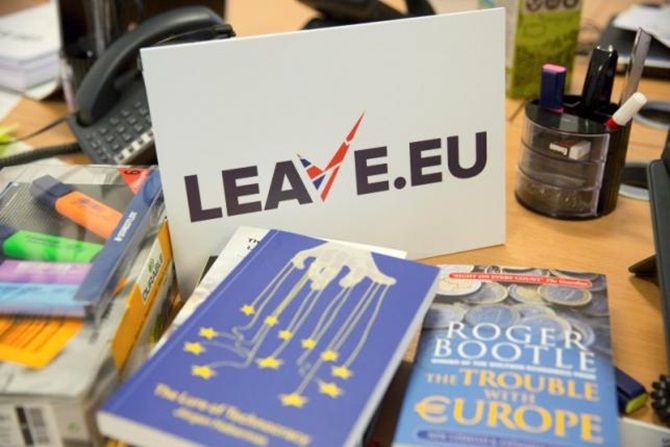The UK voted to leave the EU, by a margin of 51.9 per cent to 48.1 per cent, in a referendum on 23 June.
 "Brexit means Brexit", Prime Minister Theresa May asserted on Wednesday, rejecting a second referendum as she held a brainstorming session with her ministers on Britain's withdrawal from the EU amid reports of major divisions among key figures in the Cabinet.
"Brexit means Brexit", Prime Minister Theresa May asserted on Wednesday, rejecting a second referendum as she held a brainstorming session with her ministers on Britain's withdrawal from the EU amid reports of major divisions among key figures in the Cabinet.
The Prime Minister stated her position before chairing a Cabinet meeting at her country retreat, Chequers on Brexit after the June referendum in favour of Britain leaving the European Union (EU).
She once again reiterated that "Brexit means Brexit", ruling out any second referendum on Britain's withdrawal from the the 28-nation bloc.
"We will be looking at the next steps that we need to take and we will also be looking at the opportunities that are now open to us as we forge a new role for the UK in the world," May said in a statement as she chaired the meeting.
"We must be clear that we are going to make a success of it - that means no second referendum, no attempts to sort of stay in the EU by the back door. That we are actually going to deliver on it," she said.
She has indicated that the UK government will not trigger Article 50 - the official mechanism for beginning the process of leaving the EU - until the start of 2017 at the earliest.
From that moment, discussions over the terms of the UK's exit will conclude in two years unless all 28 members of the EU agree to extend them.
The UK voted to leave the EU, by a margin of 51.9 per cent to 48.1 per cent, in a referendum on 23 June and May, who had backed staying in the EU, became prime minister after David Cameron resigned in its aftermath.
Two months on from the vote, the relationship the UK will have with the EU after its exit, in terms of access to the EU internal market and obligations in regard to freedom of movement, remains unclear.
Today's meeting at the Prime Minister's country residence is being billed as the most significant since the referendum vote in June and comes amid reports of tensions and diverging priorities among key figures in the Cabinet charged with implementing the UK's exit.
Photograph: Reuters






 © 2025
© 2025